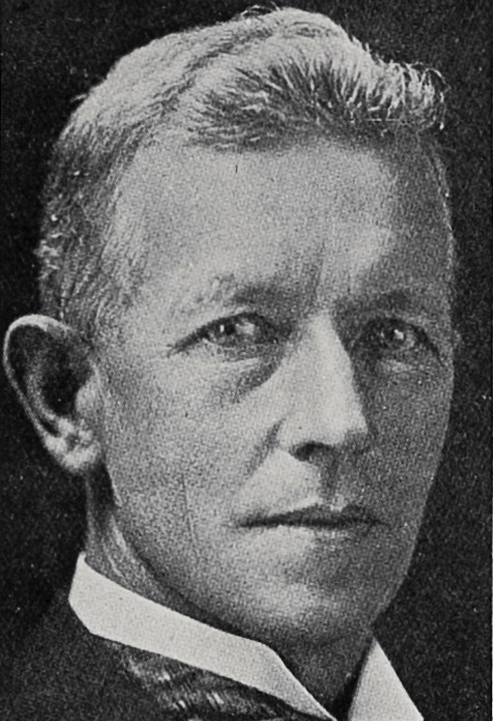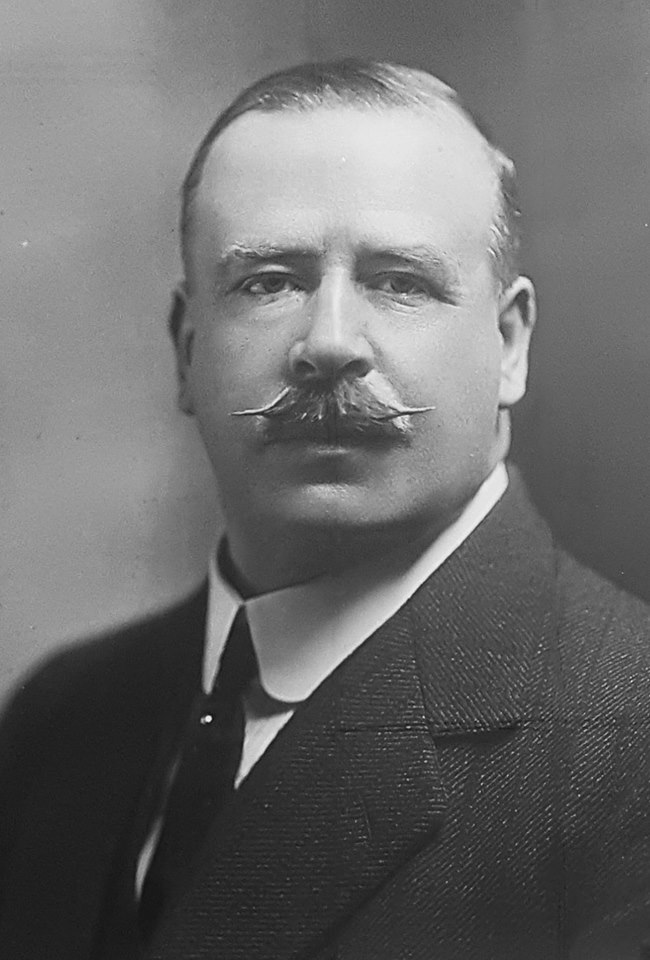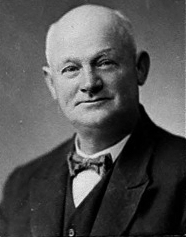|
Alfred Ansell
Alfred Edward Ansell (1876 – 16 February 1941) was a Reform Party Member of Parliament in New Zealand. Ansell was born in 1876 in Dunedin. He was elected to the Chalmers electorate in the 1928 general election, but was defeated in 1935. In 1935, he was awarded the King George V Silver Jubilee Medal The King George V Silver Jubilee Medal is a commemorative medal, instituted to celebrate the 25th anniversary of the accession of King George V. Issue This medal was awarded as a personal souvenir by King George V to commemorate his Silver J .... He died unexpectedly on 16 February 1941. References 1876 births 1941 deaths Reform Party (New Zealand) MPs New Zealand MPs for Dunedin electorates Members of the New Zealand House of Representatives Unsuccessful candidates in the 1935 New Zealand general election {{NewZealand-politician-stub ... [...More Info...] [...Related Items...] OR: [Wikipedia] [Google] [Baidu] |
Alfred Edward Ansell
Alfred Edward Ansell (1876 – 16 February 1941) was a Reform Party Member of Parliament in New Zealand. Ansell was born in 1876 in Dunedin. He was elected to the Chalmers electorate in the 1928 general election, but was defeated in 1935. In 1935, he was awarded the King George V Silver Jubilee Medal The King George V Silver Jubilee Medal is a commemorative medal, instituted to celebrate the 25th anniversary of the accession of King George V. Issue This medal was awarded as a personal souvenir by King George V to commemorate his Silver J .... He died unexpectedly on 16 February 1941. References 1876 births 1941 deaths Reform Party (New Zealand) MPs New Zealand MPs for Dunedin electorates Members of the New Zealand House of Representatives Unsuccessful candidates in the 1935 New Zealand general election {{NewZealand-politician-stub ... [...More Info...] [...Related Items...] OR: [Wikipedia] [Google] [Baidu] |
Reform Party (New Zealand)
The Reform Party, formally the New Zealand Political Reform League, was New Zealand's second major political party, having been founded as a conservative response to the original Liberal Party. It was in government between 1912 and 1928, and later formed a coalition with the United Party (a remnant of the Liberals), and then merged with United to form the modern National Party. Foundation The Liberal Party, founded by John Ballance and fortified by Richard Seddon, was highly dominant in New Zealand politics at the beginning of the 20th century. The conservative opposition, consisting only of independents, was disorganised and demoralised. It had no cohesive plan to counter the Liberal Party's dominance, and could not always agree on a single leader — it was described by one historian as resembling a disparate band of guerrillas, and presented no credible threat to continued Liberal Party rule. Gradually, however, the Liberals began to falter — the first blow came with ... [...More Info...] [...Related Items...] OR: [Wikipedia] [Google] [Baidu] |
Port Chalmers (New Zealand Electorate)
Chalmers, originally Port Chalmers, was a parliamentary electorate in the Otago Region of New Zealand, from 1866 to 1938 with a break from 1896 to 1902. It was named after the town of Port Chalmers, the main port of Dunedin and Otago. Population centres In the 1865 electoral redistribution, the House of Representatives focussed its review of electorates to South Island electorates only, as the Central Otago Gold Rush had caused significant population growth, and a redistribution of the existing population. Fifteen additional South Island electorates were created, including Port Chalmers, and the number of Members of Parliament was increased by 13 to 70. History Port Chalmers was first established in 1866 for the term of the 4th New Zealand Parliament. For the , it was renamed as Chalmers. In 1896, the electorate was abolished, but it was re-created (again as Chalmers) for the . The electorate was abolished again for the last time in 1938. Due to World War II, the 1941 census w ... [...More Info...] [...Related Items...] OR: [Wikipedia] [Google] [Baidu] |
Dunedin
Dunedin ( ; mi, Ōtepoti) is the second-largest city in the South Island of New Zealand (after Christchurch), and the principal city of the Otago region. Its name comes from , the Scottish Gaelic name for Edinburgh, the capital of Scotland. The city has a rich Scottish, Chinese and Māori heritage. With an estimated population of as of , Dunedin is both New Zealand's seventh-most populous metro and urban area. For historic, cultural and geographic reasons the city has long been considered one of New Zealand's four main centres. The urban area of Dunedin lies on the central-eastern coast of Otago, surrounding the head of Otago Harbour, and the harbour and hills around Dunedin are the remnants of an extinct volcano. The city suburbs extend out into the surrounding valleys and hills, onto the isthmus of the Otago Peninsula, and along the shores of the Otago Harbour and the Pacific Ocean. Archaeological evidence points to lengthy occupation of the area by Māori prior to the ar ... [...More Info...] [...Related Items...] OR: [Wikipedia] [Google] [Baidu] |
Evening Star (Dunedin)
__NOTOC__ Evening star may refer to: Astronomy * The planet Venus when it appears in the west (evening sky), after sunset ** The ancient Greeks gave it the name Hesperus * Less commonly, the planet Mercury when it appears in the west (evening sky) after sunset Plants * ''Oenothera biennis'', a medicinal plant * '' Mentzelia pumila'', and other species of ''Mentzelia'' Arts and entertainment * " Song to the Evening Star" ("''O du mein holder Abendstern''"), an aria from Richard Wagner's 1845 opera ''Tannhäuser'' * ''The Evening Star'', an engraving of a painting by Sir Thomas Lawrence for The Amulet, 1833 in combination with a poem by Letitia Elizabeth Landon. * ''The Evening Star'', an engraving of a painting by John Boaden for The Amulet, 1836, in combination with a poem by Letitia Elizabeth Landon. * "Evening Star", a poem by Edgar Allan Poe * ''The Evening Star'', a 1996 sequel to the film ''Terms of Endearment'' * ''Evening Star'' (Fripp & Eno album), 1975 * ''Evening S ... [...More Info...] [...Related Items...] OR: [Wikipedia] [Google] [Baidu] |
1928 New Zealand General Election
The 1928 New Zealand general election was held on 13 and 14 November in the Māori and European electorates, respectively, to elect 80 MPs to the 23rd session of the New Zealand Parliament. 1928 was the year postal voting was introduced for certain specified groups (e.g. invalids) who could not get to a polling booth on election day. The election The 1928 election was held on Tuesday, 13 November in the Māori electorates, and on Wednesday, 14 November in the general electorates to elect a total of 80 MPs to the 23rd session of Parliament. A total of 844,633 electors were registered on the European roll, of which 743,691 (88.05%) turned out to vote. All 80 electorates were contested. 47 and 29 electorates were in the North Island and South Island, respectively, plus the 4 Māori electorates. In 1927, a faction of the decaying Liberal Party formed a new organisation, which was eventually named the United Party. In 1928, to the considerable surprise of most observers and many m ... [...More Info...] [...Related Items...] OR: [Wikipedia] [Google] [Baidu] |
1935 New Zealand General Election
The 1935 New Zealand general election was a nationwide vote to determine the shape of the New Zealand Parliament's 25th term. It resulted in the Labour Party's first electoral victory, with Michael Joseph Savage becoming the first Labour Prime Minister after defeating the governing coalition, consisting of the United Party and the Reform Party, in a landslide. The governing coalition lost 31 seats, which was attributed by many to their handling of the Great Depression: the year after the election, the United and Reform parties merged to form the modern National Party. The election was originally scheduled to be held in 1934, in keeping with the country's three-year election cycle, but the governing coalition postponed the election by one year hoping that the economic conditions would improve by 1935. Background Since 1931, New Zealand had been governed by a coalition of the United Party and the Reform Party, the United–Reform Coalition. United and Reform had tradition ... [...More Info...] [...Related Items...] OR: [Wikipedia] [Google] [Baidu] |
King George V Silver Jubilee Medal
The King George V Silver Jubilee Medal is a commemorative medal, instituted to celebrate the 25th anniversary of the accession of King George V. Issue This medal was awarded as a personal souvenir by King George V to commemorate his Silver Jubilee. It was awarded to the Royal Family and selected officers of state, officials and servants of the Royal Household, ministers, government officials, mayors, public servants, local government officials, members of the navy, army, air force and police in Britain, her colonies and Dominions. For Coronation and Jubilee medals, the practice up until 1977 was that United Kingdom authorities decided on a total number to be produced, then allocated a proportion to each of the Commonwealth countries and Crown dependencies and possessions. The award of the medals was then at the discretion of the local government authority, who were free to decide who would be awarded a medal and why. A total of 85,234 medals were awarded, including *6,500 ... [...More Info...] [...Related Items...] OR: [Wikipedia] [Google] [Baidu] |
The Evening Post (New Zealand)
''The Evening Post'' (8 February 1865 – 6 July 2002) was an afternoon metropolitan daily newspaper based in Wellington, New Zealand. It was founded in 1865 by Dublin-born printer, newspaper manager and leader-writer Henry Blundell, who brought his large family to New Zealand in 1863. With his partner from what proved to be a false-start at Havelock, David Curle, who left the partnership that July, Henry and his three sons printed with a hand-operated press and distributed Wellington's first daily newspaper, ''The Evening Post'', on 8 February 1865. Operating from 1894 as Blundell Bros Limited, his sons and their descendants continued the very successful business which dominated its circulation area. While ''The Evening Post'' was remarkable in not suffering the rapid circulation decline of evening newspapers elsewhere it was decided in 1972 to merge ownership with that of the never-as-successful politically conservative morning paper, '' The Dominion'', which belonged to ... [...More Info...] [...Related Items...] OR: [Wikipedia] [Google] [Baidu] |
James Dickson (New Zealand Politician)
James McColl Dickson (1854 – 16 March 1937) was a Reform Party Member of Parliament in New Zealand. Dickson was born in Victoria in 1854. He came to Otago as a nine-year-old and continued his schooling there. Together with his brother, he was for many years a sawmiller. He then had a farm at Portobello Portobello, Porto Bello, Porto Belo, Portabello, or Portabella may refer to: Places Brazil * Porto Belo Ireland * Portobello, Dublin * Cathal Brugha Barracks, Dublin formerly ''Portobello Barracks'' New Zealand * Portobello, New Zealand, on Ot ... for the next 40 years breeding stock. Dickson was a member of the Portobello School Committee. In 1911, he was voted onto the Otago Harbour Board and served for three terms as chairman. He first stood for Parliament in the in the electorate but missed out to reach the second ballot by less than 100 votes. He won the Chalmers electorate in the 1914 general election, and held it to 1928, when he retired. Dickson's wif ... [...More Info...] [...Related Items...] OR: [Wikipedia] [Google] [Baidu] |
Archie Campbell (politician)
Archibald Campbell (2 January 1874 – 1 September 1955) was a New Zealand politician of the Labour Party and Secretary of the Port Chalmers Waterside Workers Union. Political career Norman Hartley Campbell, the brother of Archibald Campbell, had unsuccessfully contested the Chalmers electorate in the and s. His brother had already won the nomination as the Labour candidate for the against Michael Connelly, when he died in February 1935 following an operation. The Labour Party hierarchy wanted to make Connolly their candidate, but there was resentment and a new ballot was held, which was won by Archibald Campbell. He was elected for the Chalmers electorate with the swing to Labour in the 1935 election, but retired in 1938 Events January * January 1 ** The Constitution of Estonia#Third Constitution (de facto 1938–1940, de jure 1938–1992), new constitution of Estonia enters into force, which many consider to be the ending of the Era of Silence and the a ... ... [...More Info...] [...Related Items...] OR: [Wikipedia] [Google] [Baidu] |
1876 Births
Events January–March * January 1 ** The Reichsbank opens in Berlin. ** The Bass Brewery Red Triangle becomes the world's first registered trademark symbol. * February 2 – The National League of Professional Base Ball Clubs is formed at a meeting in Chicago; it replaces the National Association of Professional Base Ball Players. Morgan Bulkeley of the Hartford Dark Blues is selected as the league's first president. * February 2 – Third Carlist War – Battle of Montejurra: The new commander General Fernando Primo de Rivera marches on the remaining Carlist stronghold at Estella, where he meets a force of about 1,600 men under General Carlos Calderón, at nearby Montejurra. After a courageous and costly defence, Calderón is forced to withdraw. * February 14 – Alexander Graham Bell applies for a patent for the telephone, as does Elisha Gray. * February 19 – Third Carlist War: Government troops under General Primo de Rivera drive throu ... [...More Info...] [...Related Items...] OR: [Wikipedia] [Google] [Baidu] |




.jpg)


